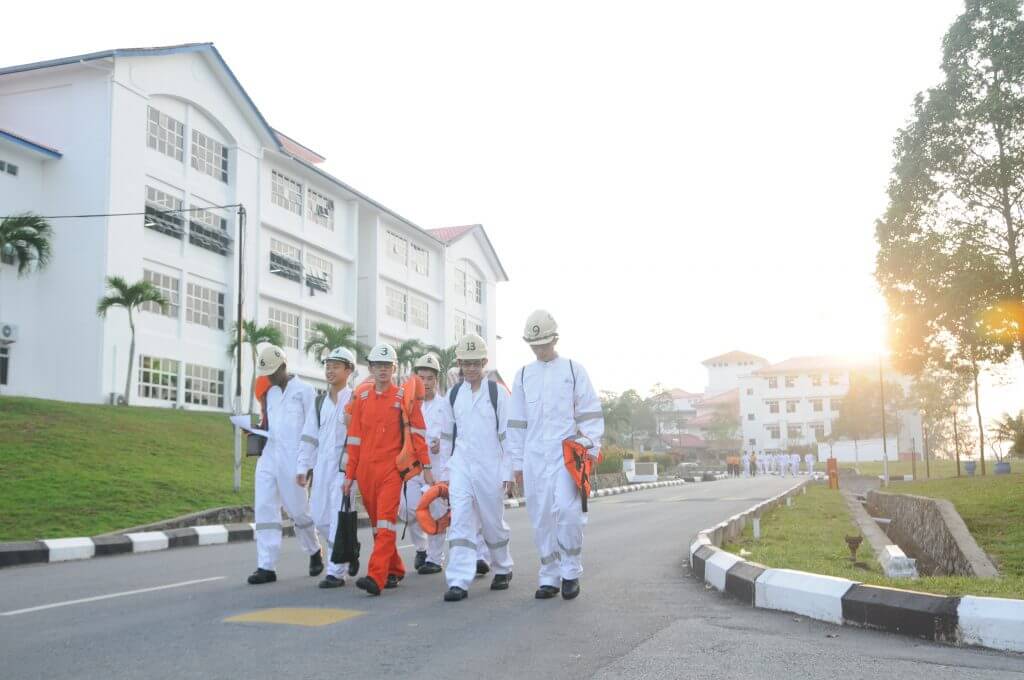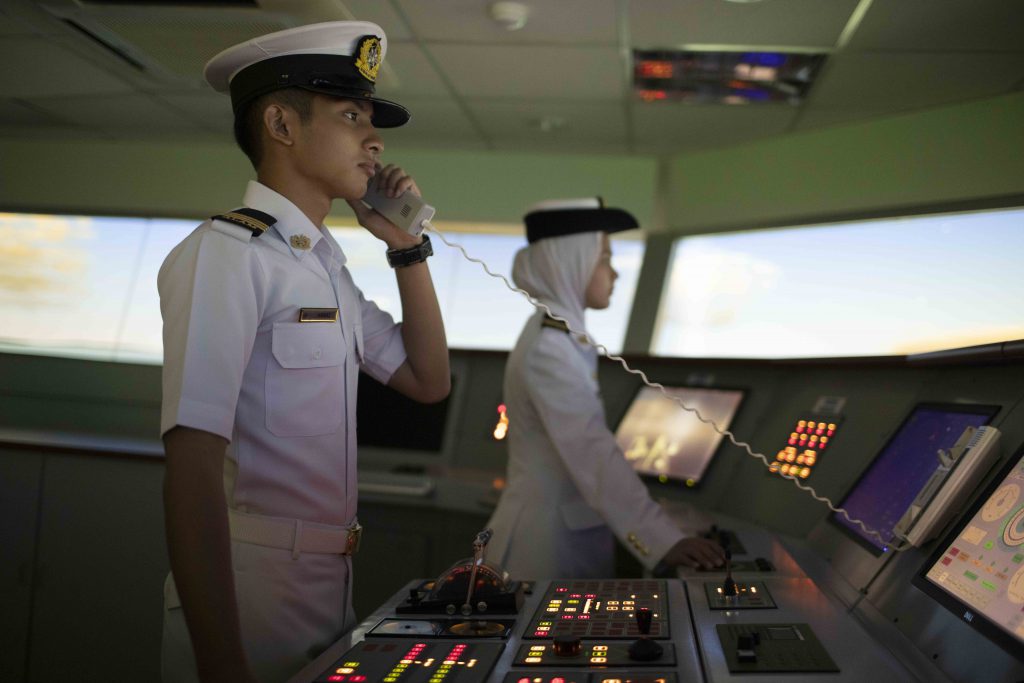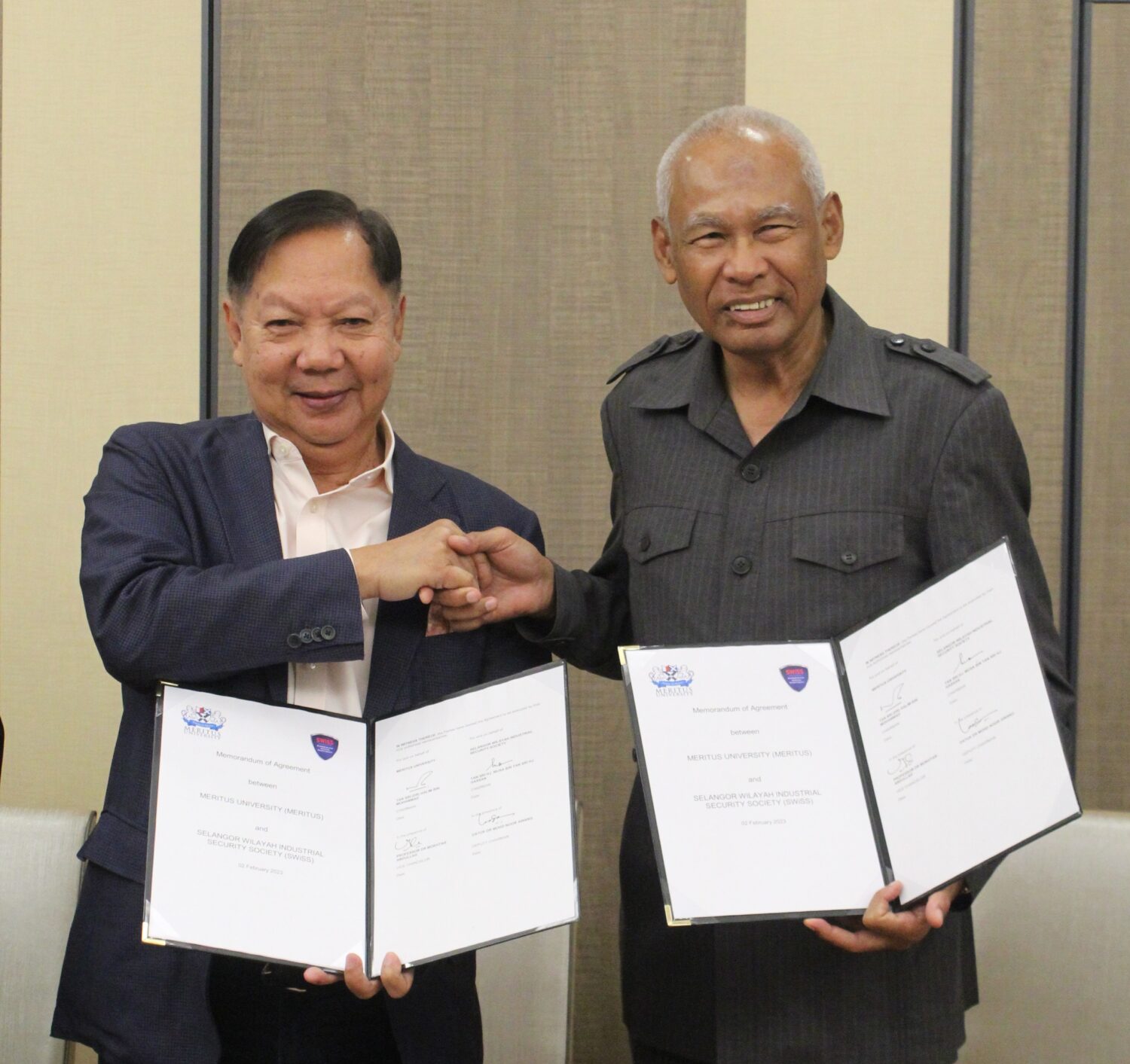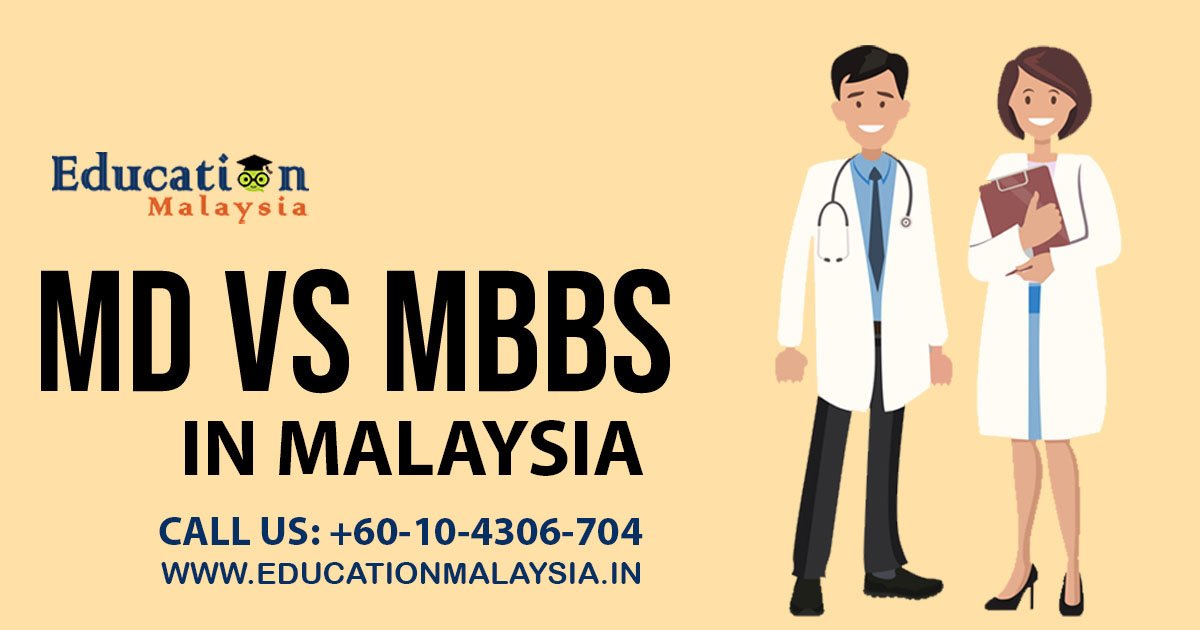Top 5 Universities in Malaysia to Study Dentistry

Table of Content
Overview
Dentistry is concerned with the diagnosis, treatment, and prevention of diseases and ailments that affect the mouth. Dentistry is a profession that focuses on restoring and maintaining a person's dental health, Dentists play an important role in the healthcare industry, from performing dental surgery and straightening teeth to giving anesthetics and prescribing drugs , Preventing cavities and maintaining healthy gums are only two aspects of oral health. In fact, it can provide a wealth of information about your overall health as well as influence your overall well-being. You may be surprised to learn that chronic inflammation in your mouth can cause inflammation in other regions of your body, even your heart!
Why Choose Dentistry Course in Malaysia?
With internationally renowned dental programs, Malaysia is emerging as a major destination for higher education. Modern facilities and a curriculum that satisfies international standards are features of universities like MAHSA, IMU, and AIMST, Students can engage with peers from a variety of backgrounds thanks to the nation's multicultural atmosphere, which promotes inclusivity and enhances their educational and cultural experiences, Malaysia is notable not only for its excellence but also for its affordability. It is a great choice for international students looking for value for their money because living expenses and tuition fees are far lower than in nations like the US, the UK, or Australia. Malaysia, which is centrally located in Southeast Asia, offers strategic worldwide exposure and convenient transit and networking connections to adjacent nations.
International Students Studying Dentistry in Malaysia
Malaysia is a popular destination for international students to study Dentistry due to its quality education, affordable tuition, and diverse cultural environments. Here is a brief overview for international students interested in pursuing Dentistry in Malaysia:
- High-Quality Education
- Malaysia boasts several highly ranked universities, such as Universiti Malaya (UM) and Universiti Kebangsaan Malaysia (UKM), known for their prestigious programs in health sciences and dentistry. These institutions feature cutting-edge research facilities and foster an international education atmosphere.
- Affordable Tuition Fees
- International students benefit from affordable tuition costs compared to many Western countries. Depending on the program level, fees range between $3,000 and $10,000 annually for Dentistry programs.
- English-Medium Instruction
- Dentistry programs offered in Malaysia are generally taught in English, making them accessible to students from various linguistic backgrounds.
- Cultural Diversity and Welcoming Environment
- Malaysia offers a multicultural experience, attracting students from across the globe. This diversity creates a rich environment for personal and academic growth.
Dentistry Course in Malaysia Fees: A Quick Overview
Malaysia is a popular destination for international students pursuing a dentistry course due to its affordable tuition fees and world-class education. The cost of a Bachelor of Dental Surgery (BDS) program typically ranges from MYR 40,000 to MYR 70,000 per year at public universities and MYR 60,000 to MYR 120,000 per year at private institutions. Postgraduate programs, such as Orthodontics or Oral Surgery, cost between MYR 30,000 and MYR 100,000 annually. In addition to tuition, students should consider other expenses like living costs (MYR 10,000 to MYR 20,000 per year), registration fees, and the cost of dental materials. Malaysia's dentistry programs are globally recognized, providing students with a balance of theoretical knowledge and practical skills. With modern facilities and expert faculty, Malaysia is an excellent choice for aspiring dentists.
Top Dentistry University in Malaysia
Top Five Dentistry Universities in Malaysia 2025 (Malaysian Dental Council recognized)
| University | QS World Ranking | Regional Ranking |
|---|---|---|
| University of Malaya (UM) | 60 | 11 |
| International Islamic University Malaysia (IIUM) | 661–670 | 130-150 |
| Universiti Kebangsaan Malaysia (UKM) | 138 | 26 |
| Universiti Sains Malaysia (USM) | 146 | 37 |
| SEGi University | - | 451-480 |
Source: QS Ranking
1.University of Malaya (UM)

The University of Malaya (UM) stands as Malaysia’s flagship institution for higher learning and is globally recognized for its academic excellence. In the 2025 QS World Rankings, it is ranked 60th globally and 11th in Asia.
UM's Faculty of Dentistry is the oldest in Malaysia, established in 1971, and continues to maintain its reputation for producing skilled professionals.
Academic Excellence: The Bachelor of Dental Surgery (BDS) at UM is a comprehensive five-year program. It balances theoretical knowledge, hands-on clinical training, and advanced research methodologies. Students have access to UM’s state-of-the-art teaching hospital and research facilities.
Scholarships: UM offers several scholarship options:
- UM Excellence Award for academically outstanding international students.
- MyBrainSc Scholarship for local postgraduate students interested in advancing research in dental sciences.
- Financial aid schemes for underprivileged students.
Global Recognition: UM’s partnerships with international universities allow students to participate in exchange programs and collaborative research projects.
2. International Islamic University Malaysia (IIUM)

International Islamic University Malaysia (IIUM), located in Gombak, Selangor, offers a unique dentistry program rooted in Islamic values alongside modern education. Ranked in the range 661–670 globally in the QS World University Rankings 2025 and is ranked 130-150 in Asia.
Program Overview: The Bachelor of Dental Surgery (BDS) integrates advanced dental practices with a strong emphasis on ethics and preventive care. Students also gain early exposure to patient management in IIUM’s clinical settings.
Scholarships and Financial Aid: IIUM provides scholarships such as:
- Internal financial aid for students with financial needs.
- MARA and JPA scholarships for Malaysian students.
- Opportunities for international students to apply for merit-based grants.
Multicultural Environment: IIUM is known for fostering a diverse and inclusive student body, helping graduates become adept at serving global communities.
Research and Innovation: The university promotes interdisciplinary research, particularly in dental materials and oral health studies.
3. Universiti Kebangsaan Malaysia (UKM)

Universiti Kebangsaan Malaysia (UKM), ranked 138th globally and 26th in Asia, is a leader in health sciences education and research.
- Program Excellence: The Doctor of Dental Surgery (DDS) at UKM emphasizes both academic rigor and clinical training. Students undergo intensive training in their teaching hospitals, supported by modern simulation labs.
- Scholarships and Grants: UKM offers various financial assistance programs:
- UKM Vice-Chancellor’s Gold Medal Award for top-performing students.
- External scholarships like JPA and industry-sponsored funding for dental research.
- Research Opportunities: UKM is well-known for its research contributions in oral cancer studies, orthodontics, and community dentistry.
- Global Exposure: Students benefit from partnerships with international universities, including exchange programs and conferences.
4. Universiti Sains Malaysia (USM)

Universiti Sains Malaysia (USM), located in Penang, ranks 146th globally and 37th in Asia, cementing its place as one of the leading universities for health sciences in Malaysia.
- Cutting-Edge Curriculum: The Doctor of Dental Surgery (DDS) program at USM incorporates problem-based learning, digital dentistry, and advanced oral healthcare techniques.
- Scholarships and Fellowships:
- USM Fellowship Scheme supports postgraduate studies.
- Research funding through MyBrain15 for Malaysian students.
- Additional scholarships are available for high-achieving international students.
- Clinical Facilities: Students train in USM’s dental hospital, which is equipped with digital imaging tools and advanced dental equipment.
- Innovative Research: USM focuses on emerging fields such as biomaterials in dentistry and AI applications in oral health.
5. SEGi University

As a leading private institution, SEGi University is recognized for its strong focus on international standards in education and practical learning. It ranks 451-480 in Asia for International Students metric, underscoring its global appeal.
- Program Highlights: SEGi’s Bachelor of Dental Surgery (BDS) emphasizes small group teaching, ensuring personalized attention. Students gain practical experience through internships and partnerships with dental clinics.
- Scholarships and Financial Support:
- High Achievers’ Scholarship for students with exceptional academic performance.
- Tuition discounts for international students based on merit.
- Global Collaboration: SEGi collaborates with global dental institutions, allowing students to learn about international dental practices.
- Urban Advantage: Located in Subang Jaya, SEGi provides access to Malaysia’s vibrant dental industry and internship opportunities.
Education Levels of Dentistry Courses
| Qualification | Requirements |
|---|---|
| Diploma | Minimum Grade B in Biology, Chemistry, Physics, Mathematics/Add Maths, and 1 other subject |
| Bachelor’s Degree | A-Levels minimum of BBB / ABC / AAC or CGPA 3.0 in Biology, Chemistry, Physics, or Mathematics |
| Master’s Degree | Bachelor’s degree or equivalent in a relevant discipline; clinical experience might be required |
| PhD | Master’s degree or equivalent in a relevant discipline; clinical experience might be required |
Diploma in Dentistry Courses in Malaysia
A Diploma in Dentistry in Malaysia provides foundational education and practical skills in oral healthcare, preparing students for careers as dental assistants, hygienists, or further studies in dentistry. This program is ideal for students looking to enter the dental field without committing to a full bachelor's degree initially.
Intakes:
- Most diploma programs offer multiple intakes throughout the year, commonly in January and July, providing flexibility for students to begin their studies.
Entry Requirements:
- To enroll in a Diploma in Dentistry, students generally need:
- A high school diploma or equivalent.
- Minimum grades in Biology, Chemistry, and Physics, with a strong background in Mathematics or Additional Mathematics. Some institutions may require an interview or assessment.
Tuition Fee:
- The tuition fee varies by institution but typically ranges from RM 10,000 to RM 30,000 per year. This affordability makes the program an attractive choice for students seeking cost-effective education in dentistry.
Syllabus:
The curriculum combines theoretical knowledge with hands-on training. Key subjects include:
- Core Courses: Basic Dental Anatomy, Oral Hygiene Practices, Radiology, Dental Materials, and Dental Assisting Techniques.
- Elective Courses: Communication Skills, Patient Management, and Basic Business Skills for clinic operations.
- Students also gain practical experience through clinical placements.
Jobs for Diploma Holders:
Graduates of a Diploma in Dentistry can pursue various roles, such as:
- Dental Assistant: Supporting dentists during procedures and managing patient care.
- Dental Hygienist: Performing routine oral cleanings and preventive treatments.
- Dental Laboratory Technician: Creating dental prosthetics like crowns and dentures.
- Clinic Manager: Overseeing the administrative operations of dental clinics.
These roles provide valuable experience for those who may later pursue advanced degrees in dentistry.
Bachelor’s in Dentistry Courses in Malaysia
A Bachelor’s in Dentistry (commonly referred to as Bachelor of Dental Surgery (BDS)) in Malaysia is a prestigious undergraduate program designed to prepare students for professional careers in oral healthcare. The program is regulated by the Malaysian Dental Council (MDC) and meets global standards in dental education.
Intakes:
- Intakes for BDS programs often occur in February and September, depending on the university.
Entry Requirements:
- A-Levels: Minimum BBB / ABC / AAC in Biology, Chemistry, and Physics or Mathematics.
- International Baccalaureate (IB): Minimum of 30 points, including science subjects.
- Foundation/Pre-University Program: Minimum CGPA of 3.0 in relevant science subjects.
Tuition Fee:
- Local Students: RM 70,000–120,000 annually.
- International Students: RM 80,000–140,000 annually.
Syllabus:
The curriculum includes core and elective courses such as:
- Core Courses: Anatomy, Physiology, Biochemistry, Oral Surgery, Orthodontics.
- Clinical Training: Patient care in university dental clinics.
- Electives: Research methodology and public dental health.
Jobs for Bachelor’s Holders:
- General Dentist in private clinics or government hospitals.
- Roles in community dental health centers or dental laboratories.
- Opportunities in research or dental product sales.
Master’s in Dentistry Courses in Malaysia
A Master’s in Dentistry in Malaysia is an advanced postgraduate program designed for dental professionals seeking specialization in various fields of dentistry. The program emphasizes clinical expertise, advanced research, and leadership in dental sciences. It is recognized by the Malaysian Dental Council (MDC) and offers global opportunities for graduates.
Intakes:
- Common intakes occur in March and September, with flexible options depending on the university.
Entry Requirements:
- A Bachelor’s degree in Dentistry or equivalent.
- Work experience may be required for specialized fields.
Tuition Fee:
- Local Students: RM 30,000–60,000 annually.
- International Students: RM 40,000–80,000 annually.
Syllabus:
- Advanced Courses: Orthodontics, Periodontology, Oral Surgery, Endodontics.
- Research Component: Thesis or dissertation work.
- Clinical Internships: Specialization-based clinical training.
Jobs for Master’s Holders:
- Specialist Dentist (e.g., Orthodontist, Periodontist).
- Academic roles as lecturers in dental schools.
- Research positions in dental innovation or public health projects.
PhD in Dentistry Courses in Malaysia
A PhD in Dentistry in Malaysia is a rigorous, research-intensive program aimed at producing dental scholars and experts who contribute to advancing dental sciences. This degree is ideal for those pursuing academic, research, or leadership roles in dentistry.
Intakes:
- Typical intakes occur in March, July, and October, with some flexibility based on the university.
Entry Requirements:
- A Master’s degree in Dentistry or a related field.
- Submission of a research proposal aligned with the university’s focus areas.
Tuition Fee:
- Local Students: RM 20,000–50,000 annually.
- International Students: RM 40,000–80,000 annually.
Syllabus:
- Research Focus: Conduct independent research leading to a dissertation.
- Advanced Coursework: Optional modules in research methods or pedagogy.
- Publications: Requirement to publish in academic journals.
Jobs for PhD Holders:
- Academic roles as professors or researchers in universities.
- Leadership roles in dental research institutions or government health programs.
- Senior advisory or managerial positions in public health organizations and the dental industry.
What Makes a Good Dentistry Program?
When selecting a dentistry course in Malaysia, consider the following features:
- Accreditation: Ensure the program is accredited by relevant international and Malaysian dental bodies.
- Hands-on Training: Look for opportunities to gain clinical experience in real-world settings.
- Research Opportunities: Universities that encourage innovation and research can provide a competitive edge.
- Support for International Students: Facilities like mentoring, accommodation, and financial aid are essential for a smooth learning experience.
Career
Career Prospects of Dentistry Courses in Malaysia
1) Growing Demand
- The demand for qualified dental professionals in Malaysia is increasing due to a growing awareness of oral health and hygiene. The government's initiatives to expand healthcare services and the rise in private dental clinics contribute to this demand. Additionally, advancements in cosmetic dentistry and orthodontics are driving the need for specialized professionals.
2) Employment Opportunities
Dentistry graduates have diverse career paths, including:
- Working as general dentists in private or public healthcare facilities.
- Pursuing specialties such as orthodontics, oral surgery, or periodontics.
- Academic roles as lecturers or researchers in universities.
- Opportunities in cosmetic dentistry or dental technology companies.
- Setting up their own dental practices to cater to local or niche markets.
3) Salary Expectations
Dentists in Malaysia enjoy competitive salaries, which grow with experience and specialization:
- Entry-level dentists: MYR 3,000–5,000 per month (~$650–$1,100).
- Experienced professionals or specialists: MYR 8,000–15,000 per month (~$1,700–$3,200).
- Dentists with private practices or niche specializations can earn significantly higher incomes.
4) Top Employers
Dentistry graduates are sought after by reputable employers, including:
- Government Hospitals and Clinics: Offering stable positions and opportunities for skill development.
- Private Dental Clinics: Providing competitive pay and exposure to diverse cases.
- Universities and Research Institutions: For those interested in teaching or research.
- Dental and Healthcare Corporations: Specialized roles in dental product development, technology, or management.
5) Sustainable Practices
The dental industry in Malaysia is increasingly adopting sustainable practices, such as:
- Using eco-friendly dental materials and equipment.
- Minimizing waste through innovative technologies like digital impressions and reusable instruments.
- Promoting preventive dentistry to reduce the environmental impact of extensive treatments.
- Graduates with knowledge of sustainable practices are highly valued in modern dental practices and align with global trends in healthcare sustainability.
Application Process
Application Process for Dentistry in Malaysia
Step-by-Step Guide
- Research Universities and Programs
- Identify universities offering dentistry programs that match your needs. Check their accreditation (e.g., Malaysian Dental Council).
- Check Entry Requirements
- Review the academic and English language proficiency requirements.
- Prepare Required Documents
- Gather all necessary documents (see below).
- Online Application
- Apply directly through the university’s portal or an authorized representative.
- Fill out the application form and upload the required documents.
- Application Fee Payment
- Pay the non-refundable application fee (varies by university).
- Await Offer Letter
- Successful applicants will receive a conditional or unconditional offer letter.
- Accept the Offer
- Confirm your admission by accepting the offer and paying the deposit.
- Student Visa Application
- Apply for a Malaysian student visa with assistance from the university.
Documents Required
- Academic Transcripts: Certified copies of high school or pre-university results.
- English Proficiency Test Results: IELTS, TOEFL, or equivalent (if applicable).
- Passport Copy: A valid passport with at least 12 months of validity.
- Personal Statement: Outline your motivation for studying dentistry.
- Recommendation Letters: From teachers, employers, or academic supervisors.
- Medical Report: A health certificate approved by the Malaysian government.
- Passport-Sized Photos: As per Malaysian immigration requirements.
Application Deadlines:
- February Intake: Applications close by December of the previous year.
- September Intake: Applications close by July.
- Some universities may have rolling admissions, so check specific deadlines.
Visa Processing Deadlines:
- Submit your visa application at least 2–3 months before the program start date.
Student Visa Requirements:
- Valid Passport: Must be valid for at least 6 months from the date of application.
- Offer Letter from a Malaysian University: Issued by the institution confirming enrollment in a full-time Dentistry program.
- Completed Visa Application Form: To be submitted to the Malaysian immigration authorities.
- Proof of Financial Ability: Demonstrating that you can afford tuition fees and living expenses in Malaysia. This can include bank statements or sponsorship letters.
- Passport-sized Photographs: As per the specific size and format required by Malaysian authorities.
- Academic Documents: Original and certified copies of previous qualifications, including high school or bachelor’s degree certificates.
- Medical Examination: A medical check-up is often required, ensuring that the applicant is free of contagious diseases.
Comparison of Dentistry Courses: Malaysia vs. US and UK
| Factor | Malaysia | US | UK |
|---|---|---|---|
| Tuition Fees (Annual) | $3,000 - $10,000 | $30,000 - $70,000 | $25,000 - $60,000 |
| Program Duration (Bachelor's) | 5 years | 8 years (including 4 years of undergraduate study) | 5 years |
| Living Costs (Monthly) | $300 - $600 | $1,000 - $2,500 | $1,200 - $2,000 |
| Total Estimated Cost (3-4 years) | $15,000 - $50,000 | $150,000 - $280,000 | $120,000 - $250,000 |
| Scholarships Available | Yes, for international students (merit-based and government-funded) | Yes, but highly competitive | Yes, for academic excellence and international students |
| Language of Instruction | English | English | English |
Cost of Living for Dentistry Students in Malaysia
| Expense Category | Estimated Monthly Cost (RM) |
|---|---|
| Accommodation | RM 400 - RM 1,500 |
| Food | RM 300 - RM 600 |
| Transportation | RM 100 - RM 300 |
| WiFi/Internet | RM 80 - RM 150 |
| Miscellaneous | RM 200 - RM 400 |
FAQ
1. How long does it take to complete a dentistry course in Malaysia?
A typical dentistry course in Malaysia takes 5 years, including clinical training.
2. Are Malaysian dental degrees recognized internationally?
Yes, Malaysian dental degrees are accredited and recognized by dental councils worldwide, making graduates eligible to work globally.
3. What is the cost of studying dentistry in Malaysia?
The tuition fees for dentistry programs range from RM 40,000 to RM 80,000 per year, depending on the university.
4. Can international students apply for dentistry courses in Malaysia?
Absolutely! Malaysian universities welcome international students and provide support services such as mentoring and accommodation.
6. Can I transfer credits to international universities while studying dentistry in Malaysia?
Yes, some universities like the International Medical University (IMU) offer credit transfer programs to partner universities in countries like Australia, Canada, New Zealand, and the UK.
7. What is the average cost of studying dentistry in Malaysia?
The cost varies by university but typically ranges between RM 54,500 to RM 130,800 annually for Malaysian students. International students may incur slightly higher fees.
8. What are the intake periods for dentistry programs in Malaysia?
Most universities have specific intake periods. Common intakes are:
MAHSA University: September
IMU: February
SEGi University: September
MMMC: September
AIMST University: March, May, July
9. Is the dentistry qualification from Malaysia recognized globally?
Yes, Malaysian dental qualifications are recognized by international bodies, allowing graduates to practice dentistry in many countries, subject to local licensing requirements.
10. What are the specializations available after completing a dentistry degree?
Graduates can specialize in areas such as:
Orthodontics
Periodontology
Oral Surgery
Pediatric Dentistry
Restorative Dentistry
Dental Public Health
11. What are the job prospects for dentistry graduates in Malaysia?
Dentistry graduates have a high demand in Malaysia due to the growing need for oral healthcare. They can work in both public and private sectors, pursue further studies, or establish their own dental clinics.
12. Can international students study dentistry in Malaysia?
Yes, Malaysia welcomes international students for dentistry programs. Many universities offer tailored support, including visa assistance and accommodations, to make their academic journey seamless.













